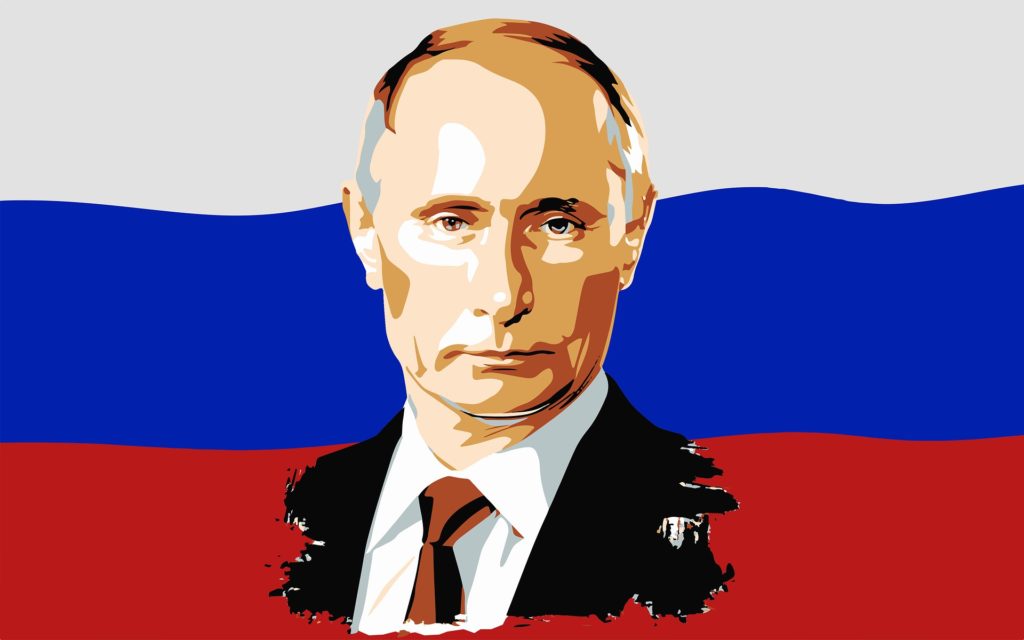
I have written a lot about the various approaches nation-states and organizations are taking on Artificial Intelligence. From Saudi Arabia to Australia, Facebook to Google, Tencent to Baidu. Today I’m digging into another major player in the AI space. One that is led by a President who in 2017 described AI as so fundamental that “whoever becomes the leader in this sphere will become the ruler of the world.”
Russian President Vladimir Putin spoke at the AI Journey conference in Moscow last week, and once again didn’t hold back on expressing the importance of being prepared for AI. “Global history knows many cases when large, global corporations and even countries literally slept through a technological breakthrough and were swept off the historical stage overnight,” Putin said at the conference, according to Russian News Agency TASS. Underestimating AI is not something President Putin is willing to allow to happen on his watch. “We must remember this. I want my colleagues in ministries, departments, regions of the Russian Federation, in state companies, research centers and universities to hear me now: we have to tackle issues of a fundamentally new level of complexity.”
“Artificial intelligence is not about a so-called fashion hype or a prestigious trend, that will fade away, vanish tomorrow or the day after tomorrow. No, this will not happen,” Putin said. “We are allocating serious resources, both financial and administrative ones, on creation and development of technologies. Our plans for bringing artificial intelligence and digital transformation into the mainstream are unparalleled in terms of the depth of changes they entail in all spheres. They will really affect every person, every family, every sector of the economy and social sphere, every organization and every level of government, the entire system of government,” Putin said.
President Putin was asked during the conference if he believes an AI robot could be President. He said no, and that a leadership role such as President requires attributes that he doesn’t believe a robot possesses. “Like any artificial thing, an artificial intelligence has no heart, no soul, no feeling of compassion, no conscience, Putin said according to the Russian News outlet RT. “All those components are extremely important in people who [other] people entrust with taking and implementing decisions on behalf of a nation.”
Putin’s comments come in the same week that outgoing U.S. President Trump passed an executive order Promoting the Use of Trustworthy Artificial Intelligence in the Federal Government. The order was designed to ‘recognize the potential for AI to improve government operations, such as by reducing outdated or duplicative regulations, enhancing the security of Federal information systems, and streamlining application processes. It also directs agencies to ensure that the design, development, acquisition, and use of AI is done in a manner that protects privacy, civil rights, civil liberties, and American values.’
The order is divided into 4 sections aimed at accelerating the federal adoption of advanced technology:
- Principles for the Use of AI in Government
The EO directs federal agencies to be guided by nine common principles for the design, development, acquisition, and use of AI. These principles emphasize that AI use by Federal agencies must be lawful; purposeful and performance-driven; accurate, reliable, and effective; safe, secure, and resilient; understandable; responsible and traceable; regularly monitored; transparent; and accountable. These principles build upon related principles already established by the defense and intelligence communities and are designed to cover Federal applications beyond defense and national security.
- Common Policy for Implementing Principles
The EO establishes a process for implementing these principles through common policy guidance across agencies. The order directs OMB to develop and post a roadmap for policy guidance to better support the use of AI by agencies, consistent with this order. The order further calls on agencies to continue to use voluntary consensus standards developed with industry participation, as appropriate.
- Catalogue of Agency Use Cases of AI
The EO directs each agency to prepare an inventory of use cases of AI by the agency, and review and assess these use cases for consistency with this order. These inventories will be shared with other agencies, as appropriate, to improve interagency coordination for advancing the implementation of the principles in the design, development, acquisition, and use of AI.
- Enhanced AI Implementation Expertise
The EO directs the General Services Administration to establish an AI track within the Presidential Innovation Fellows program to attract experts from industry and academia to work within agencies to further the design, development, acquisition, and use of AI in government. The order further directs the Office of Personnel Management to determine how rotational programs can be best used to expand the number of employees with AI expertise at the agencies.
Artificial Intelligence is being implemented in industries all over the world and is a central theme of the research undertaken at UCIPT. Our work in the HOPE study is using data to assess and shift behavioral outcomes among HIV and other populations.
